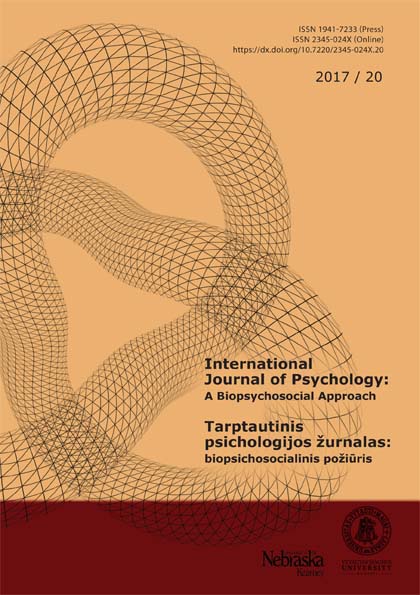The Role of a Perceived Ethical Leadership Style in the Relationship Between Workaholism and Occupational Burnout
The Role of a Perceived Ethical Leadership Style in the Relationship Between Workaholism and Occupational Burnout
Author(s): Modesta Morkevičiūtė, Auksė EndriulaitienėSubject(s): Ethics / Practical Philosophy, Social Philosophy, Management and complex organizations
Published by: Vytauto Didžiojo Universitetas
Keywords: A perceived ethical leadership style; Workaholism; Occupational burnout;
Summary/Abstract: Background. Academic literature has shown that working conditions created by ethical leaders might have positive as well as negative consequences for the employees. Research has revealed that it might contribute to employees’ workaholism and occupational burnout, but this relationship is still controversial. Purpose. The aim of this study was to investigate the significance of a perceived ethical leadership style for the relationship between employees’ workaholism and occupational burnout. Method. The study involved 302 (41 men and 261 women) employees working in different Lithuanian organizations. A perceived ethical leadership style was assessed with the help of Brown, Trevino, & Harrison’s (2005) questionnaire. The 10-item Dutch Work Addiction Scale, developed by Schaufeli, Taris, & Bakker (2009), was used for the measurement of workaholism. Occupational burnout was measured using Copenhagen Burnout Inventory by Kristensen, Borritz, Villadsen, & Christensen (2005). Results. The results revealed that workaholism, personal and work-related burnout of employees who consider their leaders as more ethical is lower than of those who consider their leaders to be less ethical. Relationship between client-related burnout and excessive work of the employees who consider their leaders as more ethical is weaker than of those who consider their leaders to be less ethical. Conclusions. Overall, the findings support that employee’s attitudes towards their leader are important for the occupational burnout and proneness to workaholism. Therefore, an ethical leadership style must be considered when addressing physical and psychological well-being of employees.
Journal: Tarptautinis psichologijos žurnalas: biopsichosocialinis požiūris
- Issue Year: 2017
- Issue No: 20
- Page Range: 61-82
- Page Count: 22
- Language: English

